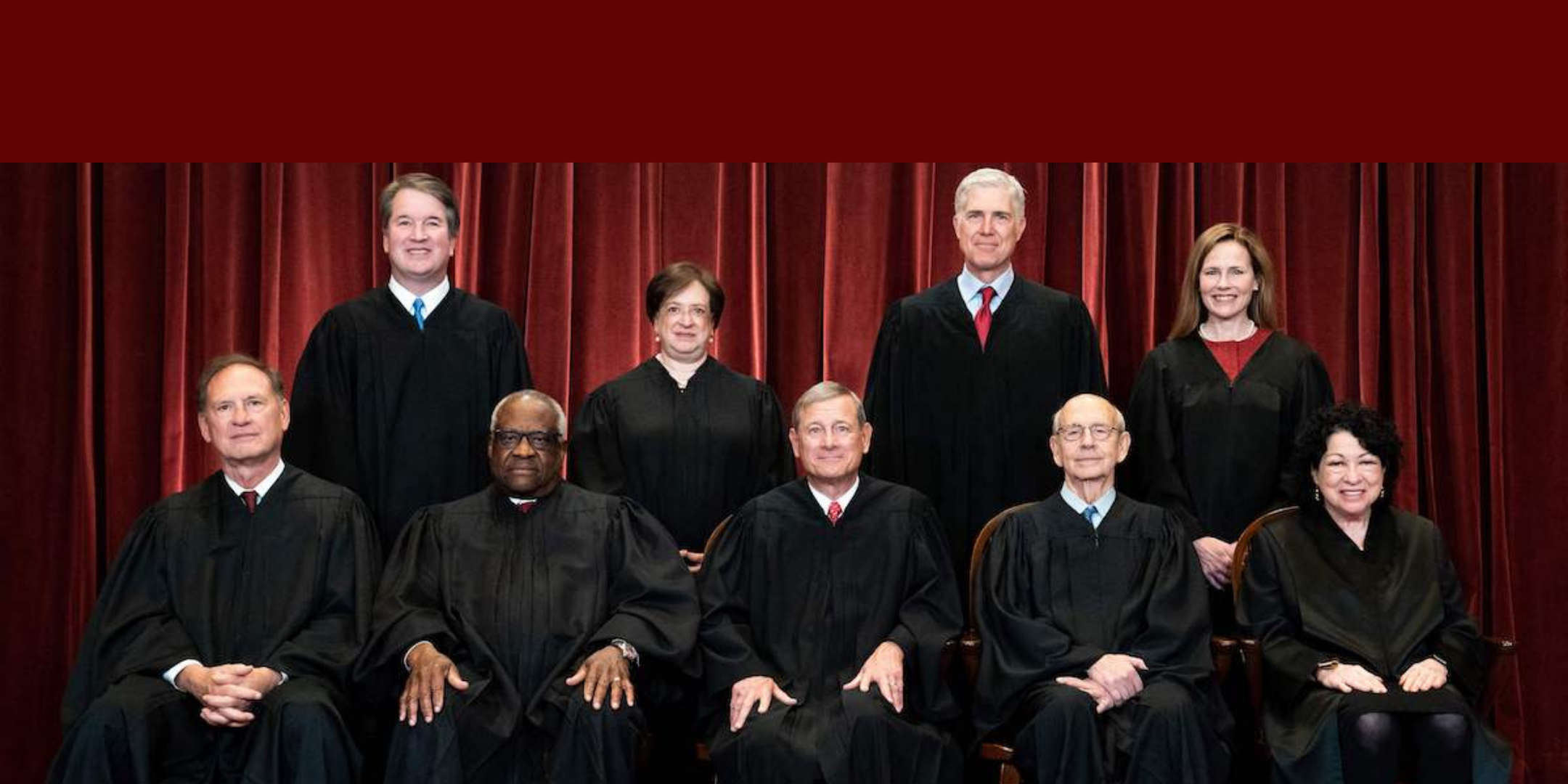
PRACTITIONER BLOG
Read our analyses of developments in Impact Litigation and stay current on class action law

Nike Runs Into Trouble Trying to Hide Discriminatory Pay Disparities
In our recent victory in the class action Cahill et al v Nike, we defeated Nike’s attempt to hide Plaintiffs’ analysis of pay disparities at the company from the public. The case is a reminder about the importance of resisting attempts by defendants to shroud class proceedings in secrecy.

Summary Judgment Ruling is Major Victory Against Money Bail
Money bail sets a price tag on freedom by forcing arrestees to pay an arbitrary amount of money to secure release before trial. It is a common practice in criminal courts throughout the country and is a major contributor to creating one system of justice for the rich and another for the poor. In a major victory, Judge Troy L. Nunley of the United States District Court for the Eastern District of California just granted summary judgment agreeing that Sacramento County’s bail system violates substantive due process because inability to afford bail results in a deprivation of liberty prior to trial.

Female athletes from James Campbell High School score class certification after Ninth Circuit Appeal
When several students and parents from the girl’s water polo team flagged concerns of gender discrimination, the DOE retaliated against the class. The administration threatened to cancel the water polo season, increased scrutiny of the team, and mysteriously lost required team paperwork. This retaliatory conduct and the stark inequality between male and female athletes at Campbell are out of bounds under Title IX. In an upset, the District Court denied class certification in 2019 finding that the class failed to meet numerosity standards and, for the class-wide retaliation claims, that plaintiffs failed to show typicality and commonality.

Ninth Circuit Panel Decertifies Class of Janitorial & Maintenance Workers: Impact Fund & Amici Urge Rehearing
A certified class of janitorial and maintenance workers survived two motions for decertification, successfully proved employer wrongdoing at summary judgment, and received significant damages in a jury bellwether trial before seeing their efforts undone by the Ninth Circuit. The recent panel opinion in Bowerman v. Field Asset Services, Inc., 39 F.4th 652, 661-63 (9th Cir. 2022), reversed certification after over seven years of litigation as a certified class. In doing so, the panel blatantly ignored the district judge’s repeated conclusion that the case was best managed as a class action.

Settlements bring key technology, other accommodations for Deaf, hard of hearing, and blind incarcerated people in Colorado
When Brian Mackes wants to submit a grievance challenging prison conditions, contact the infirmary with his medical concerns, or write a letter to his lawyer, he has to dictate his words to a fellow prisoner* who writes them down and – he hopes – writes them legibly, spells them correctly, and keeps them in confidence. Zach Radford did not understand the teachers in his required therapeutic class and was eventually removed from the class for nonparticipation; he remained on the waiting list for other required classes while others were admitted. Mr. Mackes is blind; Mr. Radford is Deaf;** both are prisoners in the custody of the Colorado Department of Corrections (CDOC).

West Virginia Can No Longer Discriminate Against Transgender Medicaid Participants
On August 2, 2022, federal District Court Judge Robert C. Chambers granted affirmative summary judgment for Plaintiffs in Fain et al. v. Crouch et. al, and ruled that West Virginia could no longer discriminate against transgender Medicaid participants by excluding coverage for gender-confirming surgical care. In their complaint, Plaintiffs alleged that West Virginia state health insurance plans deprive transgender people of essential, and sometimes life-saving, health care.

Case Advances Challenging “Debtors' Prison” for Non-Payment of Bond Supervision Fees in Texas
Anderson County’s bond supervision fee is another example of criminalizing poverty, and another example of how Texas is a major civil rights battlefield right now. Ability to pay is not considered and not paying can mean jail time. In other words, pre-trial defendants can be incarcerated simply because they can’t afford a fee — a modern-day debtor’s prison.

Southwest flies into trouble as SCOTUS holds transportation workers exempt from Federal Arbitration Act
For decades, conventional wisdom favored an expansive, business-friendly interpretation of the Federal Arbitration Act of 1925—one that has made it easier for corporations to force workers and consumers into arbitration. But this term, in Southwest Airlines v. Saxon, the Supreme Court took a different approach. Following argument by our colleague Jennifer Bennett, the Court zeroed in on the text of the FAA—specifically, how that text would have been understood when the statute was passed in 1925—and recognized an important limitation on what types of workers can be forced into arbitration.

Class Action Challenging Voter Suppression in Tennessee Survives Motion to Dismiss
Under Tennessee law, anyone convicted of a felony after 1981 is stripped of the right to vote. The result of this policy is that more than 9% of the total voting age population of Tennessee – and more than 21% of African-American voting age population – cannot vote. Despite more than 365,000 Tennesseans having completed their entire felony sentences, including probation and parole, only about 3,400 people have successfully obtained Certificates of Restoration since 2016 – less than 1%.

Ninth Circuit Finds That Discrimination Is A Concrete Injury For Purposes Of Article III Standing
The last few years have brought more and more standing-based challenges to our clients’ ability to have their day in court, with some success – look no further than TransUnion v. Ramirez, for example. Fortunately, the Ninth Circuit just rejected an attempt to insulate a bank from liability for admitted citizenship discrimination on standing grounds. Chattopadhyay v. BBVA is a class action alleging that BBVA (Banco Bilbao Vizcaya Argentaria) discriminates on the basis of citizenship status in violation of 42 U.S.C. 1981 and California’s Unruh Civil Rights Act.

BROWN UNIVERSITY RE-LEARNS TITLE IX LESSON: DON’T “RILE UP” THE AMY “COHENS OF THE WORLD”
Cohen v. Brown University, which the First Circuit just referred to as “This landmark Title IX case,” started in April 1992, after the school stopped funding its varsity women’s gymnastics and volleyball teams. Eleven female athletes won precedent-setting rulings, preserved their teams, and forced Brown to comply with Title IX notwithstanding Brown violating the agreement in the open to “kill this pestilential thing.”

RESPONDING TO THE RESTRICTION OF EMPLOYMENT DISCRIMINATION CLASS ACTIONS
The arc of employment discrimination class action law is bending away from justice. As a result, plaintiffs’ lawyers frequently have to self-censor, generally in the opening complaint or the class certification motion, or as we did in Simpson at the 23(f) stage. Maximizing the chances for certification may require defining the class or multiple small classes so as to eliminate potential class members, claims, or forms of relief. Unfortunately, this type of self-censorship deprives employees of the possibility of obtaining the types of broad reforms that we were once able to achieve and hopefully can again pursue in the future as the law evolves.

Impact Fund Stands With Low-Income “Section 8” Tenants
Throughout her tenancy, Terry’s property manager demanded that she pay for “additional services,” such as laundry machines, renter’s insurance, and parking—including for a period when she did not own a car. When she couldn’t pay, they tried to evict her. Terry was not alone. Wasatch Property Management and its related entities, whose portfolio includes more than 16,000 units across five states, charged hundreds of Section 8 tenants similar fees, using 3‑day notices to threaten eviction when tenants failed to pay.

Our Bosses Are Spying On Us: Here’s How We Can Fight Back Against Bossware
Workers’ advocates should ensure that workers understand their rights under applicable laws and encourage them to document and report uses of bossware that threaten their health and safety. Advocates should also share information with each other about harmful employer practices and technologies so that they are better-positioned both to protect workers and push for systemic policy changes. Employers will not slow their adoption of bossware systems, nor lessen other exploitative practices. Advocates must remain vigilant to ensure that bossware’s spread does not further erode workers’ rights to just labor conditions, continued well-being, and inherent dignity.

“With Friends Like These” - How Not to Write an Amicus Brief: More Lessons On Class Action Law From Mr. T v. Social Media
Prompted by former President Trump’s spate of class actions against Facebook, Twitter, and Google, we recently shared some best practice tips on filing class actions, a topic close to our hearts. A new court filing and order in Mr. Trump’s case against Twitter offers us yet another opportunity to weigh in on a different and important subject to the Impact Fund’s mission—writing effective amicus briefs. So what have we learned? Write an amicus brief that actually says what you say it says. Write an amicus brief that is about an issue actually in the case. Don’t include six-page footnotes. Don’t suggest that the judge needs something explained at a fifth-grade level. Don’t tell the judge to issue an edict that the legislature pass a better law than the one on the books.

Students With Disabilities Score Class Action Victory In Second Circuit
Earlier this month, the Second Circuit issued a great published decision in A.R. v. Conn. State Bd. of Educ., No. 20-2255, 2021 WL 2833031 (2d Cir. July 8, 2021) affirming a permanent injunction prohibiting the Board from terminating programs for students with disabilities who did not receive their high school diplomas before turning 22. The panel upheld the district court’s conclusion that a Connecticut law denying special education programs to students between their 21st and 22nd birthdays violated the federal Individuals with Disabilities Education Act (IDEA), which requires free, appropriate education for students with disabilities.

Mr. T and Rule 23: How Not to File a Class Action Against Facebook
A set of recently filed class actions against three big social media platforms are getting a lot of press and, of course, caught our eye. Constitutional scholars have already had lots to say about the legal theory in those cases but, as we said, we’re all about complex civil procedure – so we asked, “can these class actions fly?” We thought these new cases might offer some teachable moments for would-be class action lawyers who may be thinking they are ready to run the gauntlet of Federal Rule of Civil Procedure 23, the rule that governs class actions in federal court.

SCOTUS Rules on TransUnion v. Ramirez Class Action: "We Decide If It’s a Federal Case, Not Congress."
On the one hand, the outcome is hardly surprising. The conservative majority has once again limited access to the federal courts for consumers to challenge corporate malfeasance, erecting ever higher threshold procedural hurdles. On the other hand, the decision holds some interesting surprises, including a full-throated defense of the rights of the injured consumers by the dissenting Justice Thomas, joined by Justices Breyer, Kagan, and Sotomayor. The decision is well worth a close read.

Ninth Circuit Nixes "100% Natural" Wesson Oil Class Action Settlement; Finds Collusion On Attorney Fees
The court held that the class settlement—one it characterized as “reek[ing] of collusion at the expense of class members”—featured three “red flags” identified in Bluetooth. First, Plaintiffs’ counsel received a disproportionate share of the settlement—almost $7 million—while the class received less than $1 million. Further, the settlement provided for no direct notice to class members, reducing the redemption rate. Second, the parties agreed to a “clear sailing arrangement” in which ConAgra agreed not to challenge the agreed-upon fees for class counsel. This created the possibility that Defendant agreed to pay class counsel excessive fees in exchange for counsel accepting a lower amount for class members. Third, the agreement included a “kicker” or “reverter” clause in which ConAgra, not the class members, would receive a reversion of excess fees if the court reduced the agreed-upon attorney’s fees.

SCOTUS Issues Narrow Decision on Religious Refusal to Support Foster Care by Same-Sex Couples and Declines Opportunity to Create a Broad Right to Discriminate
Many LGBTQ+ advocates feared that the Supreme Court would use the Fulton decision as an opportunity to license discrimination against vulnerable groups on religious bases. Fortunately, the majority decision was narrowly focused on Philadelphia’s contracts with foster care agencies and made no general right for taxpayer-funded foster agencies to discriminate. Today’s decision is an important reminder that the primary responsibility of child services agencies is to help ensure that kids can be in loving homes where they can thrive—including those of LGBTQ families.
